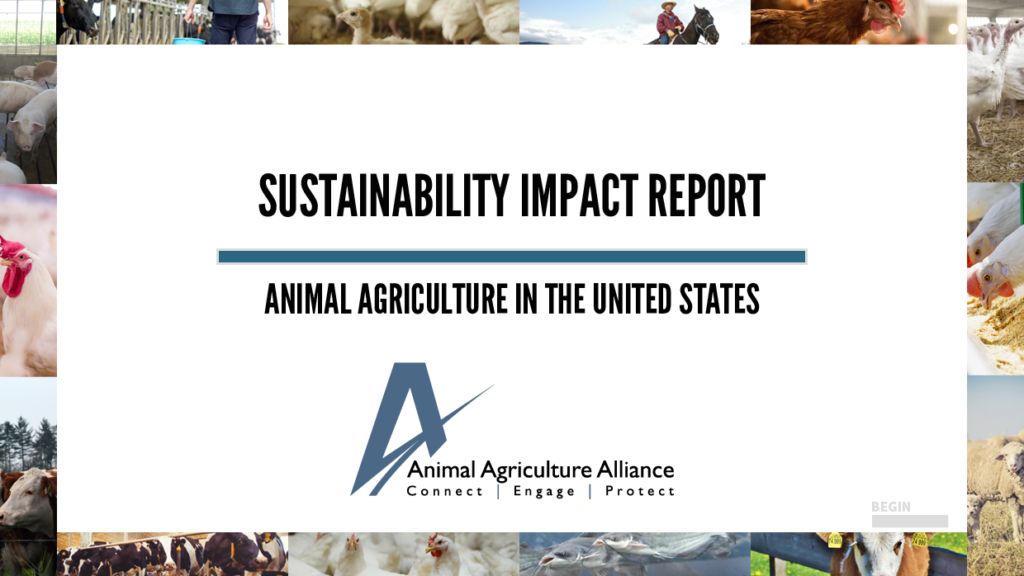We’ve all heard the word sustainability, but what does it really mean? For farmers and ranchers, it’s more than a buzzword – it’s a promise to future generations. A promise that they will care for the land, air, water and livestock in a way that ensures their children can take over the family business if they so choose.
The Animal Agriculture Alliance puts together a report every year spotlighting farmers and ranchers commitment to continuous improvement in animal care, responsible antibiotic use, environmental sustainability and food safety.

Here are a few key points from the 2017 report:
- The health of broiler chickens in the U.S. continues to improve with scientific advancements in genetics, management and nutrition. As a result of these industry-adopted developments, quarterly mortality rates remain at historic lows. According to 2016 statistics, today’s mortality rate is 4.8 percent compared to 18 percent in 1925.
- Hens under the United Egg Producers Certified program now account for 95 percent of all the nations laying hens and are independently audited annually based on guidelines recommended by a committee of world-renowned scientists in areas of food safety and animal behavior.
- In turkeys, the United States Department of Agriculture Food Safety Inspection Service reported Salmonella continued to decline to 1.7 percent in its most recent analysis updated in 2015. The turkey industry has continued to aggressively drive down the occurrence of Salmonella, to achieve the lowest count possible among raw poultry products.
- The pork industry’s flagship education program for farmers and employees is the National Pork Board’s Pork Quality Assurance Plus. As of March 2017, more than 63,000 farmers and farm employees were PQA Plus certified.
- More than 80 percent of research funded by America’s beef producers is used throughout the beef supply chain on a daily basis to enhance the safety of beef and beef products.
- The U.S. dairy industry conducts almost four million tests each year on all milk entering dairy plants. In 2017, only 0.011 percent of all milk tanker samples tested positive for residues of animal medications, indicating that efforts at detecting and deterring harmful drug residues in milk are effective. Those samples that tested positive were dumped and never reached the grocery store shelf.
Sustainability is more than a buzzword to farmers and ranchers. It is their promise to never stop giving food, fuel and fiber to families across our nation and around the world.
All posts are the opinion of the author and do not necessarily represent the view of the Animal Ag Alliance.







